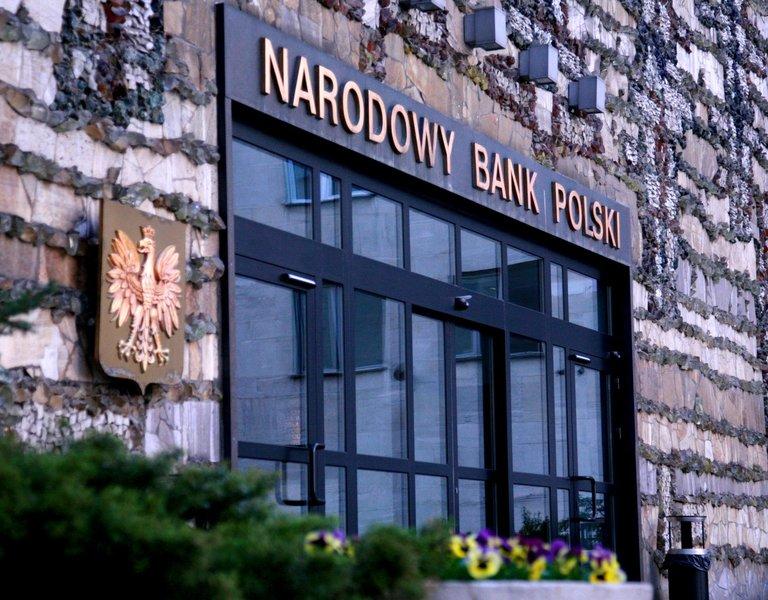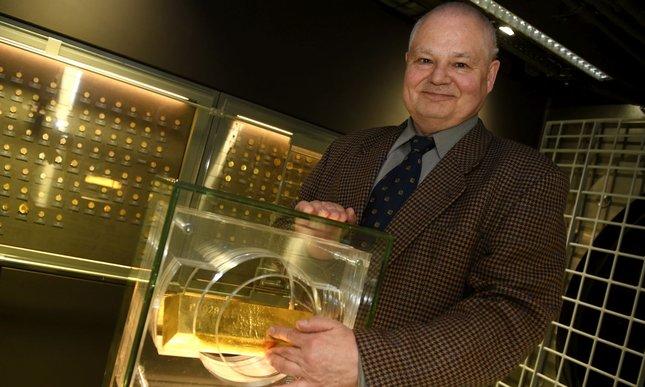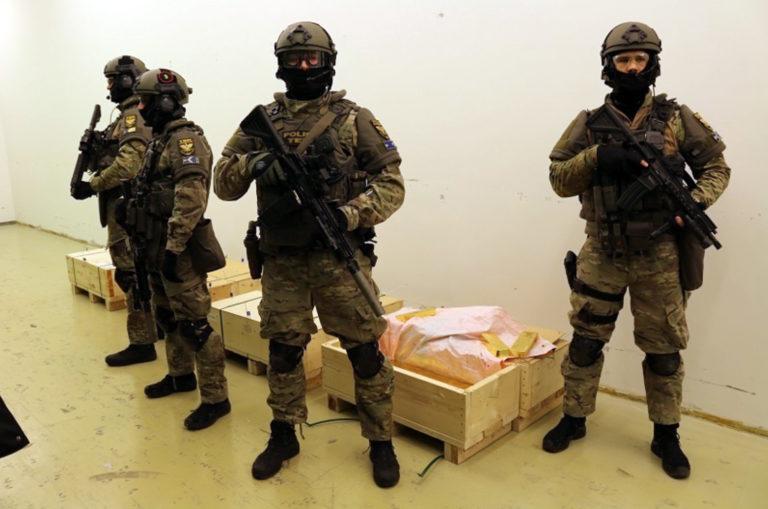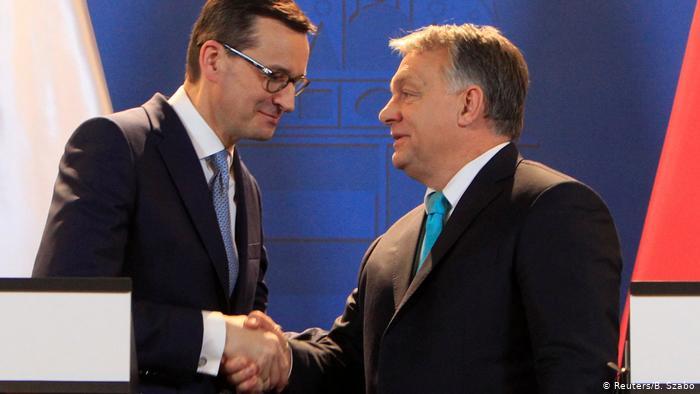With a variety of the world’s central banks going on a gold buying spree in recent years such as Russia and China, there has unsurprisingly been no shortage of newsflow in this area for the world’s financial media to comment on. But even in such an environment of abundant sovereign gold purchases, a number of buying bombshells have stood out for their intensity and ‘shock and awe’ abruptness. Particularly from nations which on the surface might seem like unlikely gold buyers.
One of these was the announcement last October by Hungary’s central bank, that after 32 years of holding unchanged gold reserves, it had rapidly increased its monetary gold holdings by 1000% or 10 fold, from 3.10 tonnes to 31.5 tonnes, and also repatriated (brought home) this entire holding from London to Budapest, away from the clutches of the Bank of England. At the time we asked:
“With almost all of Poland’s gold held at the Bank of England, a relevant question now is how long before Poland also sees fit to repatriate its gold in physical form away from the fractionally-backed LBMA controlled gold trading centre of London. “
The answer to this question was, not long at all. For to the Hungarian bombshell we can now add Hungary’s neighbor and closest political ally Poland, which has just in its own way shocked the gold market and the European Union by announcing that during the first half of 2019 it has already bought 100 tonnes of monetary gold at the Bank of England, bringing its gold reserves to 228.6 tonnes (all stored at the Bank of England), and now plans to repatriate almost half of its strategic gold reserves (or at least 100 tonnes) back to the National Bank of Poland (NBP) vaults in Warsaw.
The National Bank of Poland revealed the news about i’s gold on Friday 5 July in a short official release on its website, and the announcement is worth noting for many reasons.
From the English translation:
- The NBP’s management board made a strategic decision to significantly increase the central bank’s gold reserves. This decision was then implemented by the NBP.
- Over 2018-2019 the central bank bought 125.7 tonnes of gold and now has 228.6 tonnes of gold.
- Of the 125.7 tonnes, 100 tonnes were purchased in 2019 and 25.7 tonnes in 2018. Notably, the entire 125.7 tonnes was bought ‘in the last 12 months’.
- The NBP has decided to bring back ‘almost half’ of its gold (which is all stored at the bank of England in London) and store this repatriated gold domestically in the NBP’s vaults.
Back in the second half of 2018, Poland began to announce regular updates to its gold holdings, saying that it had purchased 2 tonnes in July, 7 tonnes in August, 4.4 tonnes in September, and another 8.7 tonnes between October and December. Prior to July 2018, the NBP had 103 tonnes of gold.
Strategic Gold Reserves – The Ultimate Monetary Asset
The stated rationale of the NBP for making its huge gold purchases were based on some of gold’s classic characteristics, as well as a relative comparison with the gold holdings of other central banks. In its announcement, the NBP calls gold the ‘most reserve’ of all reserve assets and an anchor of trust which diversifies geopolitical risk. It further refers to gold as a strategic buffer which increases credibility and supports the financial strength and security of the country even in unfavourable market conditions.
The large gold purchases were made possible by the buoyant growth in Poland’s foreign exchange reserves which the NBP said increased by EUR 30 billion over the last 5 years. This foreign exchange reserve growth put Poland in 21st place in the world FX reserve rankings yet it was only in 34th place in terms of central bank gold holdings.
Keeping up with the Neighbors
Poland’s gold holdings as a percentage of total reserves was also, it says, below average. For example, as of June 2019, when Poland was still reporting 128.6 tonnes of gold held, this represented 4.7% of its reserve assets. In comparison, the average for all central banks globally is 10.5% according to the NBP, and 20.5% for European countries. For Euro area countries, gold as a percentage of reserves assets is even higher, at 53.6%, pulled up especially by the large claimed gold holdings of Germany, France and Italy.
Buying 125.7 tonnes within 12 months, brings Poland’s average up nearer to the world central bank average of 10.5%. It also shifts Poland up from 34th to 22nd in world central bank gold holdings rankings and from 15th place to 11th in Europe and to first place in the eastern European region. Notably though, these gold purchases, although large, do not affect the gold price, despite what the World Gold Council might claim, and it would be interesting to see how the buyer’s agent, either the Bank of England or BIS, sourced the gold and who the sellers were.
In the statement, the Polish central bank says all of its gold is in the form of London Good Delivery gold bars (wholesale bars) and it claims these gold bars are held in an allocated gold account at the Bank of England, where each bar is uniquely identifiable with a unique serial number and a gold refiner mark. If that is the case, then the NBP should immediately release a weight list of all its bars that shows the bars’ unique serial numbers and the bars’ refiner marks. Not that it will do this of course, as this would shatter the worldwide opacity of the central bank gold market and the secretive Bank of England / LBMA / bullion bank gold trading and lending cartel.
An Issue of Trust – Gold Inspection before Repatriation
Very interestingly, the Polish central bank said NBP employees inspected the Polish gold (and its storage arrangements) at the Bank of England in June of this year. Whether this was an official gold audit or a walk around glance of some gold bars in one of the vaults is unclear. However, the visit by the Poles to London last month does indicate that whatever gold accumulation the NBP had planned this year is probably done for now. It also prepares the NBP for the last and most critical part of its plan, which according to its press release is to withdraw a significant quantity of this gold (at least 100 tonnes) back to Poland and away from the risks of holdings it at the Bank of England.
Although the official language in the press release is diplomatic, the NBP makes it clear that there is real risk to holding its gold in London, something that was also clear in the repatriation decisions of central banks such as Hungary and Austria, and perhaps crystallized by the Bank of England’s brazen confiscation of Venezuela’s gold in London last year.
The NBP announcement also states that central banks need to “diversify the storage locations of their gold resources in order to limit geopolitical risk, which could result, for example, in losing access to or restriction of the availability of gold resources held abroad.”
Therefore the NBP’s management board has “decided to transfer half of the current gold resources (around 100 tons) to the NBP vaults”. The repatriation operation “has already been communicated to our partners at the Bank of England and will be carried out in accordance with the schedule ensuring the security of this operation.” Given that central banks regularly say one thing while doing another, it may be the case that Poland’s gold repatriation has already happened, so it would not be surprisingly to imminently see publicity shots of gold bars in the NBP vaults in Warsaw.
Having bought 100 tonnes of gold at the Bank of England this year, and now wanting to repatriate 100 tonnes, the question then arises, are the recent purchases of 100 tonnes the only gold the Polish central bank really has access to in London, with the rest in some way encumbered and unavailable? Inquiring minds would like to know. One thing is certain though, that the gold vault holding statistics at the Bank of England will soon drop by 100 tonnes, other things being equal, something which is worth watching on a three month lagged basis here.
Polish Prime Minister Morawiecki Hungarian Prime Minister Orban
Conclusion
As two of the most independently minded countries in the present day European Union, which are both thorns in the side of the European federalists, the physical gold buying and gold repatriations by the Poles and Hungarians are intriguing to say the least. No other EU states have made such huge and dramatic gold purchases for decades. Could the huge gold purchases and repatriations by the Poles and Hungarians be signalling a skirmish in the two countries’ battle with the EU elites? Because don’t forget, the EU is raging at both countries and even plans to put them under economic sanction.
Poland and Hungary also still use their own currencies, the zloty and forint, respectively, and while their central banks are members of the ESCB, neither are part of the Euro and fully answerable to the ECB. Which also explains their freedom to maneuver and pursue their own reserve management agendas, something that full ECB members banks cannot do independently.
Importantly, as non Euro members, the Hungarian National Bank and National Bank of Poland have never been signatories of the Central Bank Gold Agreement (CBGA) syndicate, and thus have the freedom to buy gold when they feel like it, unlike the CBGA signatories which more and more now appear to have signed up to a pact to avoid purchasing any gold as well as avoiding selling any gold.
Whatever the exact motives, both Hungary’s and now Poland’s gold purchases and repatriations are sending clear signals to the EU elites that in the realms of both politics and monetary policy, the two countries still have an independent streak and sense of national sovereignty found lacking in many other EU member nations.
For now, the final word goes Polish central bank president Adam Glapiński who said in the 5 July announcement, that:
“I am proud and moved that during my term – in the year in which we celebrate the centenary of the Polish zloty as the foundation of our country’s economic strength – we managed to increase strategic gold reserves and take actions to repatriate a significant part of Polish gold to the country.
By implementing our constitutional, statutory and simply patriotic commitment, we not only build the economic strength of the Polish state, but also create reserves that will safeguard its financial security. This is the global trend, but also the expectation of Polish society.”




No comments:
Post a Comment
Note: Only a member of this blog may post a comment.